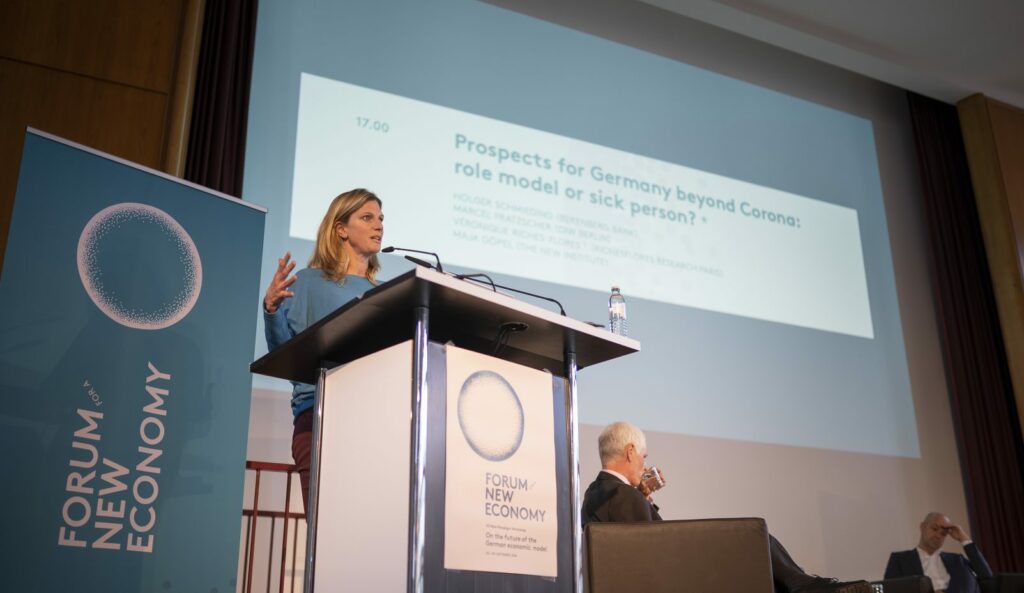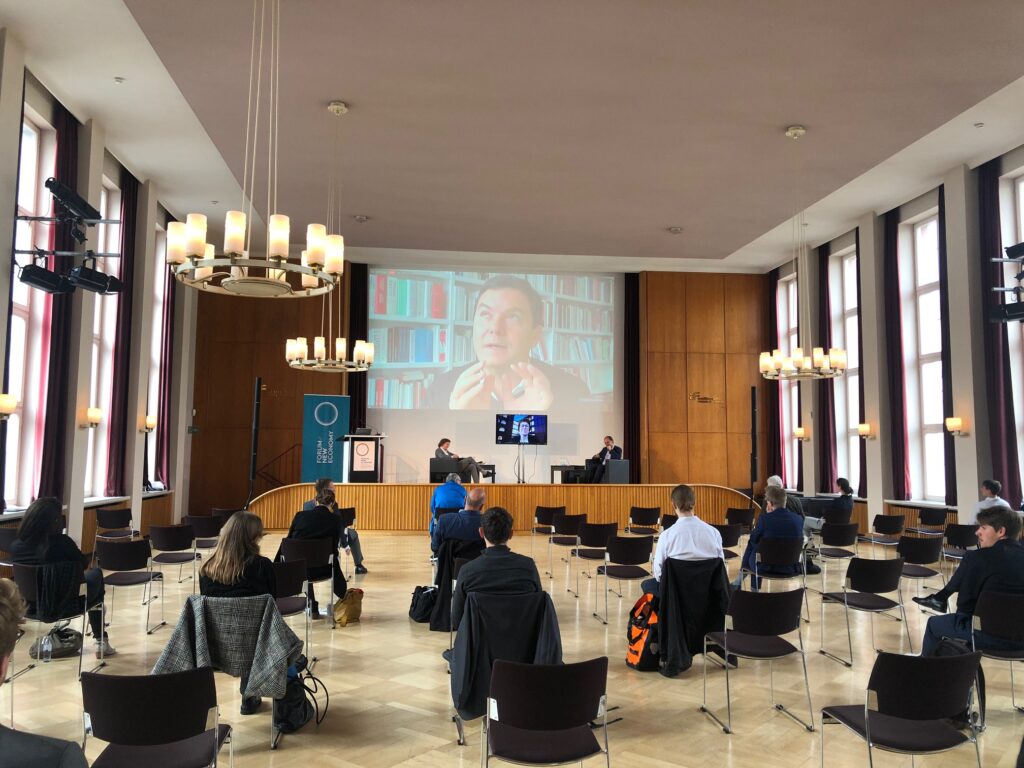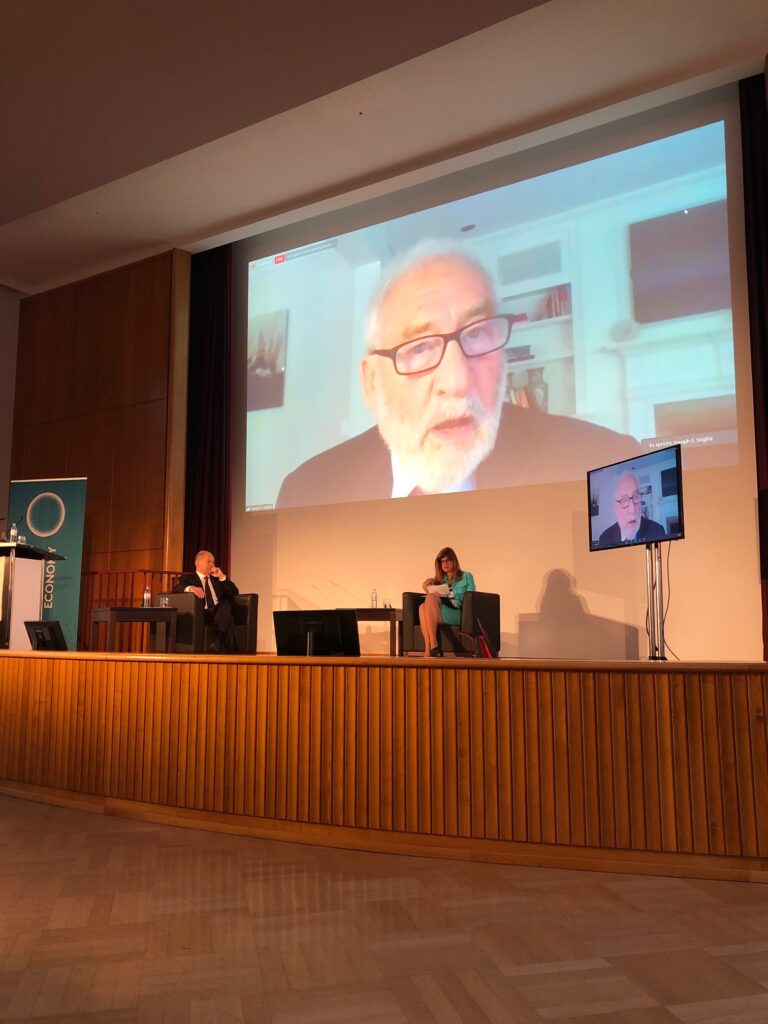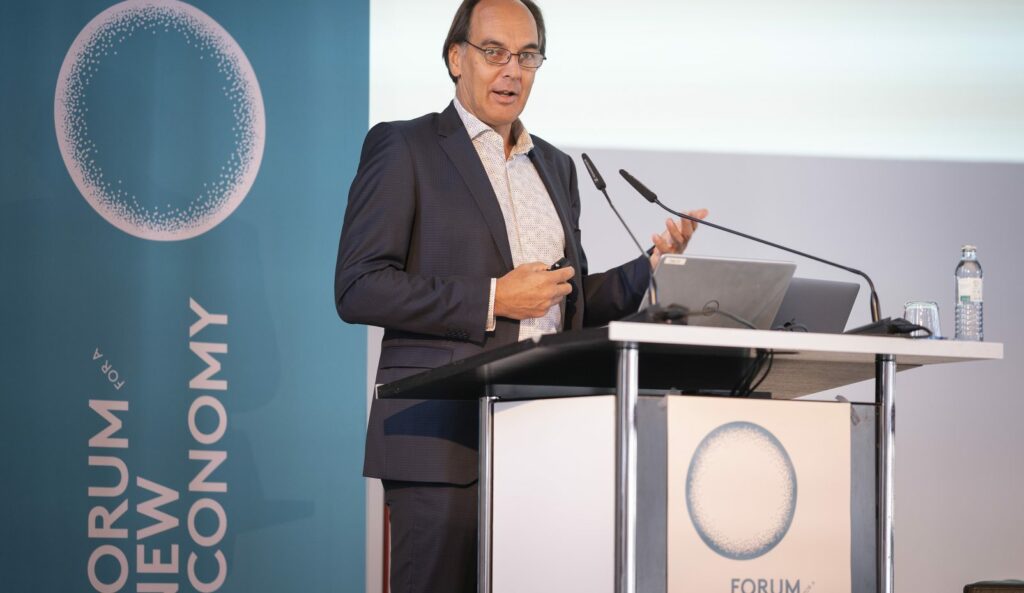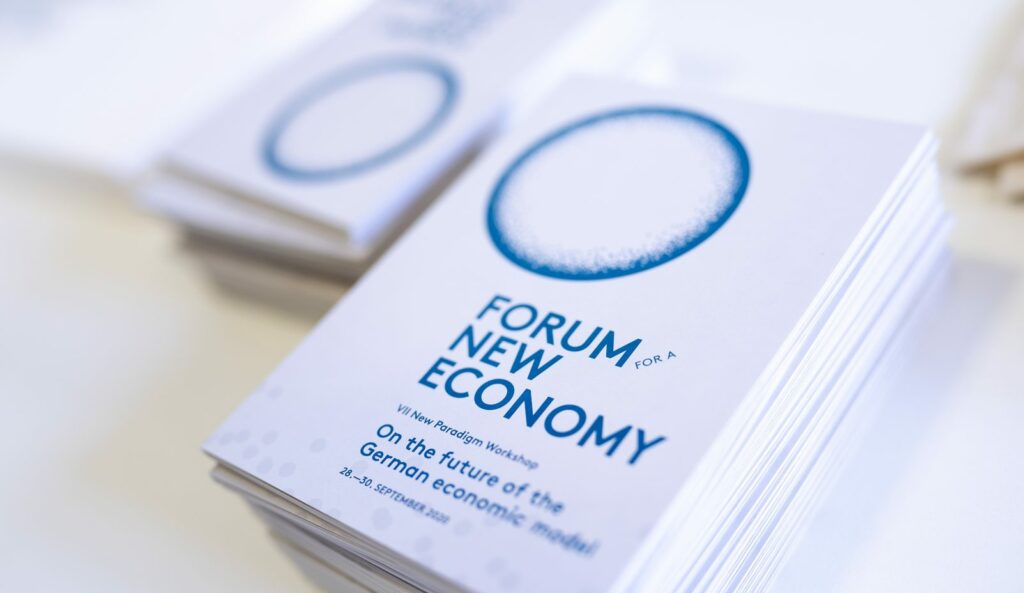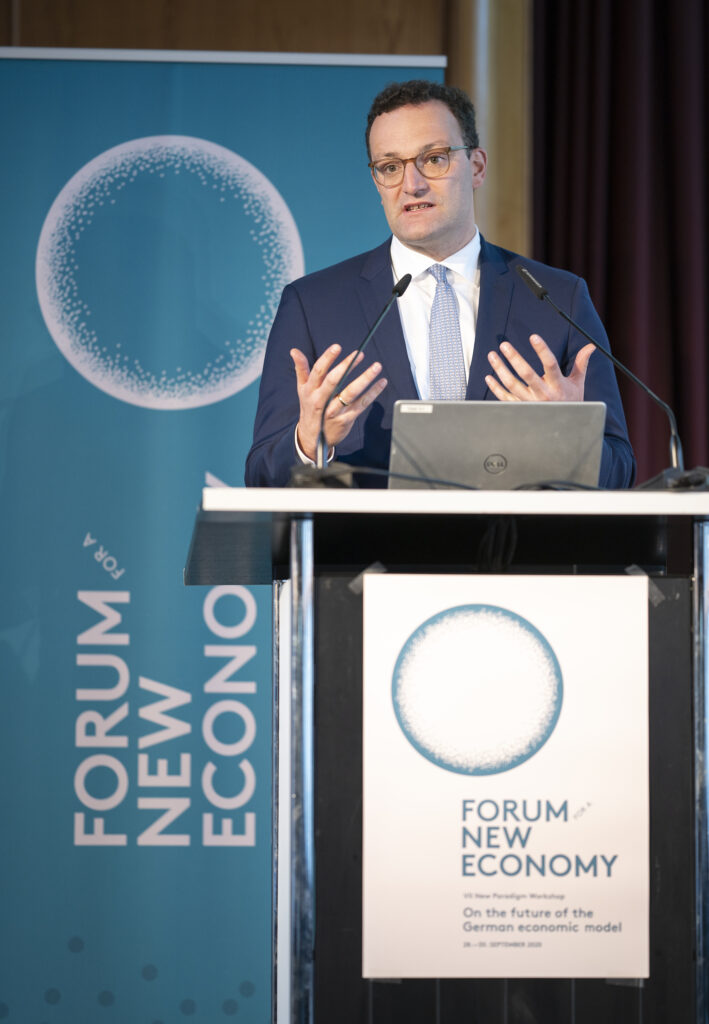Article overview
Review of the workshop on the future of the German economic model
Almost 60 speakers joined us in analysing the future of the German economic model. What was remarkable? What do we take away with us and what remains to be done?
The future of the German model – a preview of the workshop-highlights
News on inequality, a new German industrial policy, the end of the debt brake - and an exclusive survey on the crisis of capitalism. A guided tour in advance.
Beyond Growth: Towards a New Approach
The OECD has published a new report by Michael Jacobs, prepared for New Approaches to Economic Challenges (NAEC), September 2020.
Favorite Readings for a New Paradigm – Summer 2020
Every other month Forum New Economy is showcasing a hand full of selected research papers that lead the way towards a new economic paradigm.
Measuring What Matters – A GDP Critic
Joseph Stiglitz describes the problematic focus on GDP when measuring the well-being of societies. He advocates for the use of a dashboard with individual indicators for each country.
Capitalism in the pillory - more than whining
More than half of Germans have doubts about capitalism - which also makes the FAZ wonder. An attempt at resolution.


